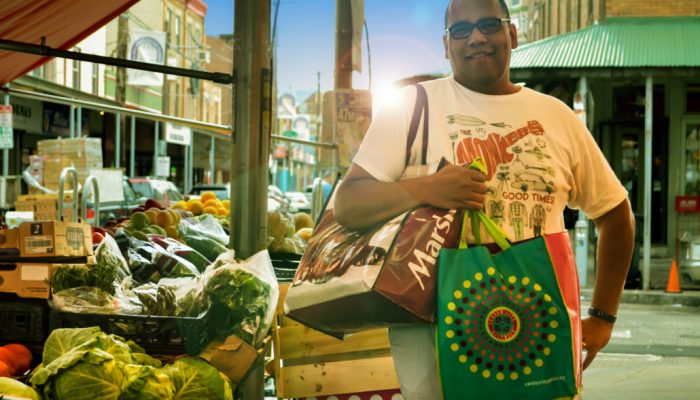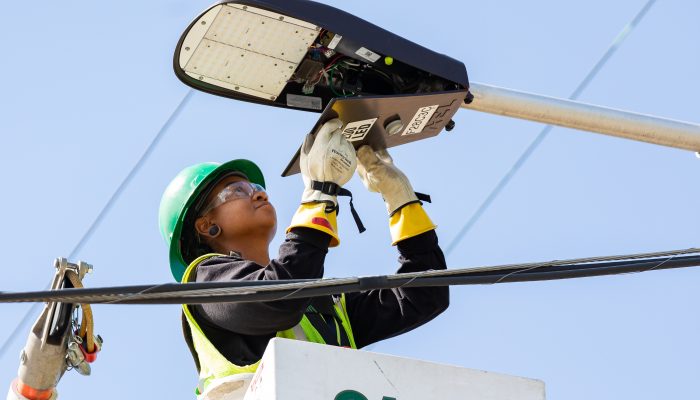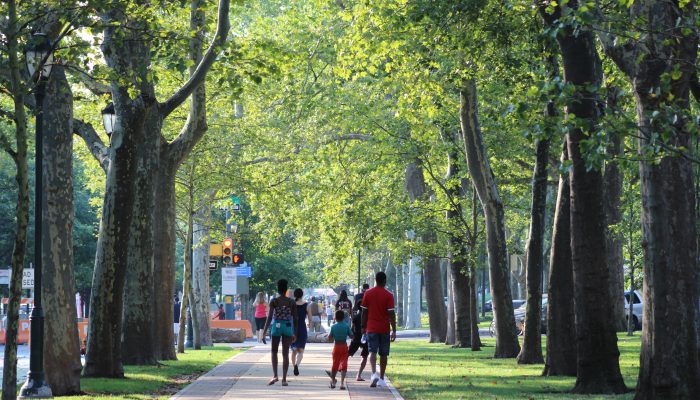We know that keeping our city clean and clear of trash is key for the health and wellbeing of all our residents. While ongoing cleaning efforts are important, we also need to make a concerted effort to reduce waste before it can get onto our streets, parks, and waterways. Single-use plastics are among the greatest contributors to our trash problem, and plastic shopping bags have historically been a major component: in the past, Philadelphians used about a billion plastic bags every year. Unless properly disposed of, many of these bags become litter in our neighborhoods and natural spaces. Additionally, plastic bags and regularly drove up costs of recycling by damaging the City’s machinery.
This is why last year, the City began enforcing its plastic bag ban ordinance to help reduce single-use plastic waste and improve the environmental quality and cleanliness of our city. Under the ordinance, retail establishments can no longer provide single-use plastic bags or paper bags that don’t meet specific requirements. Businesses can however provide reusable bags or recycled content paper bags for customers.
Promising impact shown in study
In the year since the City began enforcement of the plastic bag ordinance, we have seen a measurable decrease in plastic bag usage in the city. Thanks to an efficacy study conducted by Daniel Banko-Ferran, a PhD student at the University of Pittsburgh, with the support of Dr. Syon Bhanot, a professor at Swarthmore College, and in partnership with the Mayor’s Office, we are proud to report the following impacts:
- Prior to the ban, 64 percent of shoppers used at least one plastic bag while grocery shopping at stores in the study. After the ban was fully implemented, this percentage dropped to near zero.
- We also saw an increase in the number of shoppers using paper bags, reusable bags, or choosing not to use a bag at all.
- The proportion of consumers using a reusable bag almost doubled from 22 percent to 42 percent.
- The study estimates that the ban prevented over 200 million disposable plastic bags from being distributed in the city in its first year.
According to the study, the first few months of adoption were slower, but after time, the ban has had lasting effects. The authors note:
“It took three months for plastic bag usage to decrease in the city and remained steady near zero for the remainder of the study. The likelihood of using reusable bags gradually increased over the first year of the ban’s implementation. Paper bag usage peaked 6 months after the ban was implemented before receding slightly.”
This sustained shift in consumption patterns shows how after an adjustment period, new policies can encourage long term changes in consumer behavior with substantial impacts.
This effort shows how the City and consumers can adopt small changes that can have a tangible impact to stop waste before it starts to keep our city’s streets and waterways clean. The Office of Sustainability will continue to work with the Administration, other City departments and partners to identify policies and initiatives that can improve quality of life for residents without hurting local businesses.




